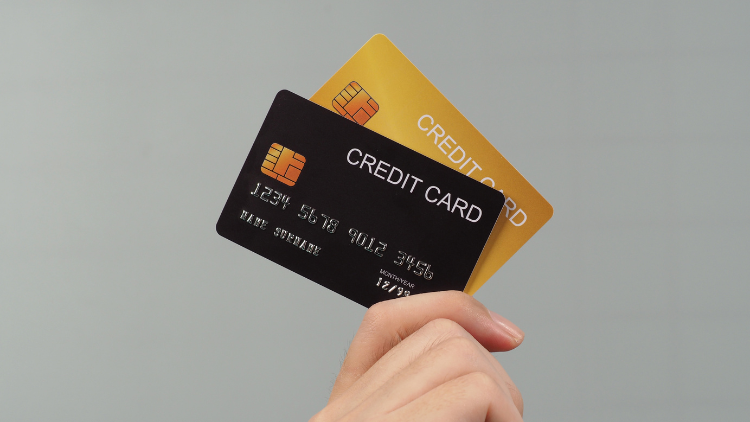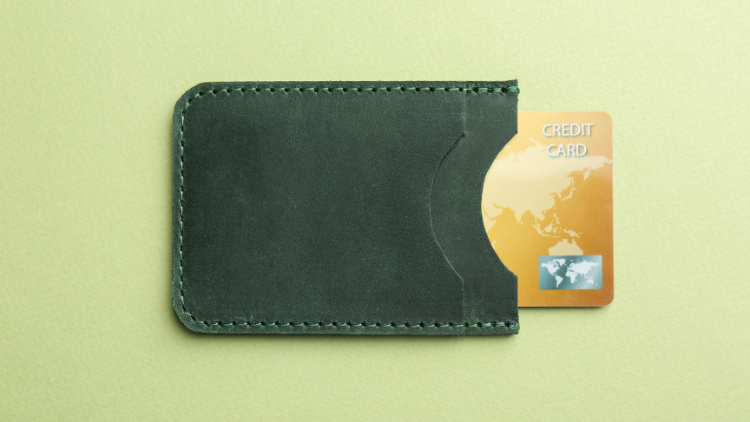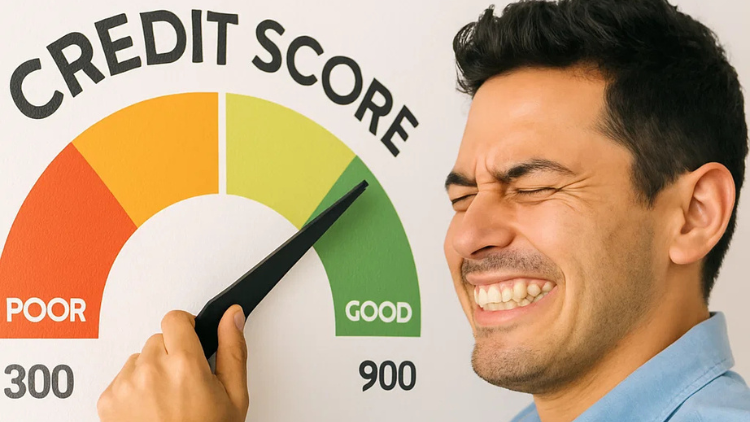It’s one of the most common questions in personal finance, and it’s surrounded by conflicting advice: will opening a new credit card wreck my score?
It’s a valid fear, and it stops many people from accessing valuable rewards or helpful financial tools.

So let’s get straight to it. Here is the real answer:
Yes, opening a new credit card will likely cause a small, temporary dip in your credit score. But in the long run, as long as you use it responsibly, a new credit card will almost always help your score.
The short-term dip is minimal and heals quickly. The long-term benefits are powerful and lasting. To understand why, you need to look under the hood at how your credit score actually works.
First, a 60-Second Refresher on Your Credit Score
Your credit score is a three-digit number that predicts how likely you are to pay back borrowed money. While the exact formulas are secret, the most widely used scoring model, FICO, tells us exactly what factors matter. According to myFICO.com, your score is calculated from five key areas:
- Payment History (35%): Do you pay your bills on time?
- Amounts Owed (30%): How much of your available credit are you using? (This is your credit utilization.)
- Length of Credit History (15%): What’s the average age of all your accounts?
- New Credit (10%): How many new accounts have you opened recently?
- Credit Mix (10%): Do you have experience with different types of credit (cards, loans, etc.)?
When you open a new card, it touches on a few of these categories at once—some in a negative way, and some in a very positive way.

The Short-Term Hit: Why Your Score Dips (A Little)
There are two minor, temporary reasons your score will likely drop by a few points right after you’re approved.
- The Hard Inquiry (Affects “New Credit”): When you apply for a card, the lender pulls your credit report to make a decision. This is called a “hard inquiry.” A single hard inquiry is a very small event, typically causing a drop of less than five points. It only impacts your score for one year and disappears from your report entirely after two years.
- The Lowered Average Age of Accounts (Affects “Length of Credit History”): Your score likes to see a long, stable history. When you add a brand-new account (age: 0), it lowers the average age of all your accounts combined. For example, if you have two cards that are 10 and 8 years old (average age: 9 years) and you add a new one, your average age instantly drops to 6 years. This causes a slight dip, but the effect lessens with each passing month.
The Long-Term Boost: How a New Card Helps Your Score

While the short-term hit is minimal, the long-term benefits are where the real story is.
- It Lowers Your Credit Utilization (Affects “Amounts Owed”): This is the most important and immediate positive impact. Your credit utilization—the percentage of available credit you’re using—is a massive factor in your score. Adding a new card dramatically increases your total available credit, which can slash your utilization ratio.
- Example: Let’s say you have one credit card with a $500 balance and a $1,000 limit. Your utilization is 50% ($500 / $1,000), which is considered high.
- Now, you open a new card with a $4,000 limit. Your total balance is still $500, but your total available credit is now $5,000.
- Your new overall utilization plummets to a healthy 10% ($500 / $5,000).
- This single change can cause a significant increase in your credit score, often more than enough to offset the small dip from the hard inquiry.
- It Builds Your Positive Payment History (Affects “Payment History”): Over time, your new card becomes another account with a long, perfect record of on-time payments. Since payment history is the biggest piece of your credit score pie (35%), adding another positive track record is a huge long-term win.

The Verdict: So, Should You Open a New Card?
For most people, the answer is a confident yes, with one important exception.
The small, temporary dip in your score is a tiny price to pay for the significant, long-term benefit of a lower credit utilization ratio and another positive account on your file.
The only time you should pause is if you are planning to apply for a major loan—specifically a mortgage or an auto loan—within the next three to six months. In that scenario, you want your score to be as high and stable as possible, so it’s best to avoid any new applications.
But if you aren’t planning to buy a house or a car tomorrow, don’t let the fear of a tiny dip hold you back. The real question isn’t “Will this hurt my score?” but “Will this card help me achieve my financial goals?” If the answer is yes, and you’re committed to paying your bills on time, that new piece of plastic will almost certainly become a powerful asset for your credit health.
Frequently Asked Questions (FAQ)
What’s the difference between a hard and soft inquiry? A hard inquiry happens when a lender checks your credit to make a lending decision, and it can temporarily affect your score. A soft inquiry happens when you check your own credit or receive a pre-approved offer, and it has no effect on your score. You can learn more from the Consumer Financial Protection Bureau (CFPB).
Does closing an old credit card help my score? Almost never. In fact, it usually hurts your score. Closing an old card reduces your total available credit (increasing your utilization) and removes a seasoned account from your report (reducing your average age of accounts). It’s almost always best to keep your old, no-annual-fee cards open, even if you don’t use them often.
WalletAware shares education, not individualized financial advice. Always confirm current terms on the issuer’s site before applying.